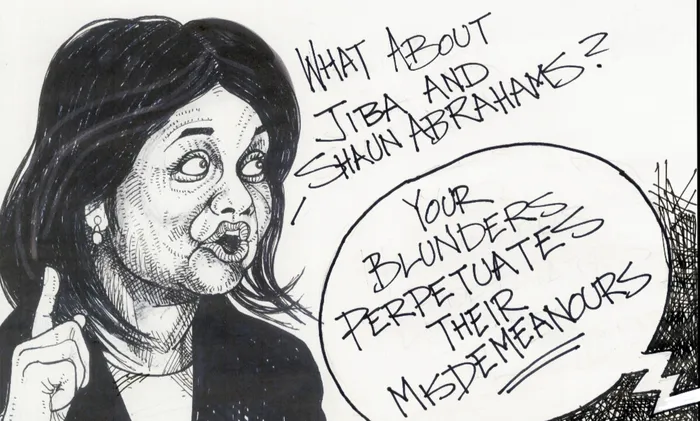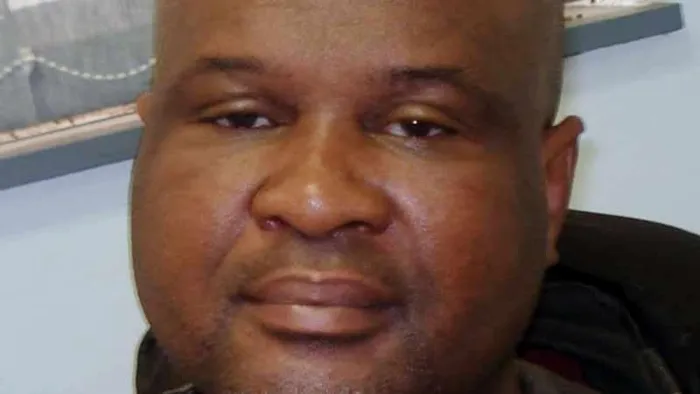
Nanda Soobben's take on the Shamilla Batohi matter.
Image: Supplied
Since 1994, South Africa has struggled to develop strong and effective institutions to combat crime and other social ills. The result is that more South Africans are placing their faith in individuals they regard as messiahs to perform miracles and save them from the scourge of crime.
The appointment of the no-nonsense and impeccable Advocate Shamila Batohi as the head of the NPA is the case in point. Batohi’s legal expertise was cemented internationally when she became a senior legal advisor to the Prosecutor of the International Criminal Court (ICC) at the Hague from 2009 to 2018
Unlike her predecessors, who were perceived as deployees of the ANC, Batohi was seen as a bona fide prosecutor and a consummate professional who would execute her mandate without prejudice, fear, or favour.
What South Africans neglected and ignored is that, like in team sport, Batohi would be teaming up with colleagues in the weak NPA and other law enforcement agencies. Batohi, for her part, appeared to have assumed that South Africa’s state institutions had evolved during her stint at the ICC and were no longer weak and ineffective.
Batohi gained notoriety and the confidence of South Africans when she reduced Hansie Cronje, the captain of the Proteas, to tears during cross-examination at the King commission, which looked into the match-fixing scandal of the Proteas’s tour of India.
Similarly, the appointment of Bheki Cele as the Minister of Police had many South Africans believing that the tough-talking “shoot to kill” Cele would miraculously scare criminals and stop rampant crime. Cele gained notoriety as a crime fighter when he served as the National Commissioner of the SAPS. Instead, crime is now out of control, and criminals continue to get away with it.
In recent weeks, Batohi has made headlines and received criticism for the NPA’s ineffectiveness in holding lawbreakers accountable. After six years at the helm of the NPA, Batohi is now beginning to feel the heat and the pressures of her hot seat. There are growing calls for Batohi to step down after the recent two high-profile cases left the NPA with egg on its face.
This begs the question: are these calls justified? The answer is not a clear-cut yes or no. Yes, Batohi can be blamed for thinking that she could fix the messy and clumsy NPA, once led by Lawrence Mrwebi and Nomgcobo Jiba, who were found “not fit and proper” to hold their NDPP positions by the courts. She also deserves criticism for overpromising and underdelivering. Her shortcoming is the failure to deliver on her promise to restore public trust in the NPA. It is almost as if she walked into the trap with her eyes wide open.
However, make no mistake in thinking that Batohi is the problem here. She began her NDPP tenure in early 2019 amid much fanfare. Her impressive resume and the promises she made to turn the NPA into a well-oiled machine endeared her to many South Africans. Even Paul Hoffman of the Institute for Accountability in Southern Africa acknowledges that Batohi started with the best intentions but has failed to enforce the law effectively
This means even good and competent people cannot thrive in a country where institutions are weak and the culture of holding people accountable is non-existent. This explains why her honeymoon lasted much longer. South Africans believed and had high hopes that her tenure would be different from those of her inept predecessors.
Calling for Batohi to step down is similar to Manchester United and Kaizer Chiefs supporters calling for a change of coaches in order to return the Red Devils and Chiefs to their glory days. As we have seen, changing coaches has not changed Manchester United’s poor performances. Similarly, calling for Batohi to step down is not going to solve the NPA’s problems.
Batohi, to all intents and purposes, appears to have become the pawn in the dysfunctional criminal justice system. This is happening in a country with no political will to combat crime, especially corruption.
South Africa’s whole criminal justice system is fundamentally flawed and, suffice it to say that it is rotten to the core. Until this elephant in the room is addressed, South Africa will remain helpless in its fight against rampant and brazen crime.
The problem of widespread crime and the helplessness of law enforcement agencies to combat it made international headlines when President Ramaphosa recently visited the White House. After 6 years as the NDPP, Batohi’s tenure is marked by spectacular missteps and unsuccessful prosecutions.
Batohi has put the blame for the NPA’s ineffectiveness on the shortage of skills across crime-fighting agencies. The NPA depends on the inept and corrupt SAPS, the Hawks, and other law enforcement agencies to effectively perform its duties. Bafana Bafana’s Senzo Meyiwa and rapper AKA's high-profile cases illustrate this problem.
The Sunday Times reports that Batohi also made claims that the NPA is “infiltrated” by unscrupulous prosecutors working in cahoots with criminals to deliberately bungle cases. She later backtracked on her serious allegations, presumably after being pressured by the Justice Minister, Mmamoloko Kubayi. One suspects that the Minister of Justice is doing some damage control by convincing Batohi to retract her comments about “infiltration.” Clearly, claims of infiltration make the government appear weak and helpless in the fight against crime.
Von Clausewitz once warned that “war is the continuation of politics by other means.” So is Law. Political interference in legal matters is not something that is unique to South Africa. Apartheid era judges enforced unjust laws, and US presidents continue to appoint judges on an ideological basis.
There is reason to believe that political interference is at play in post-apartheid South Africa. The shortage of skills, together with widespread corruption in state institutions, has made her job no easier and her tenure no different from those of her predecessors. One suspects that this is by design to protect powerful politicians from prosecution.
Since Batohi took charge of the NPA more than six years ago, not a single high-profile politician has been convicted of corruption charges.
This is despite many commissions of inquiry, such as the Zondo commission, that have fingered prominent politicians for wrongdoing and breaking the law. The issue that many people ignore is that prominent politicians such as Jacob Zuma have used delaying tactics to evade justice.
So, should Batohi do the honourable thing and resign if she cannot fix the NPA?
Some South Africans have accused Batohi of not putting enough pressure on the government to establish an anti-corruption body independent of the Executive branch’s control. Since the demise of the Scorpions, no law enforcement agency has been effective in investigating cases of corruption. The faith in Batohi among South Africans during the beginning of her tenure as the NDPP was as strong as black America’s expectations that Barack Obama would be their messiah instead of being the American president.
It appears that South Africans expected too much from Batohi as an individual and lost sight of the dysfunctionality in the law enforcement institutions across the board and the lack of political will to fight crime. Similarly, Batohi appears to have naively expected that her position would make the NPA become an effective weapon in the fight against crimes such as rape, murder, and corruption.
As a seasoned prosecutor since 1986, Batohi should have known better. She was aware of the challenges she would face working in the public sector, where corruption is endemic. Corruption is widespread in the public and private sectors, but not a single high-profile politician has been convicted. This is despite the Zondo commission and many other commissions having fingered senior leaders in government and in the state-owned enterprises, such as Eskom, for corruption.
The bungled prosecutions of the Gupta brothers, Zizi Kodwa, and others have undermined the integrity and credibility of the NPA. The acquittal of Nigerian pastor, Timothy Omotoso, and the withdrawal of charges against Moroadi Cholota appear to have been the final straw for those calling for Batohi to step down.
Like her predecessor, Shaun Abrahams, if Batohi does not resign, she risks being remembered as a lapdog. The recent court findings against the NPA add to a number of its spectacular failures.

Zakhele Collison Ndlovu
Image: File
Zakhele Collison Ndlovu is a political analyst at the University of KwaZulu-Natal.
** The views expressed do not necessarily reflect the views of IOL or Independent Media.
Related Topics: